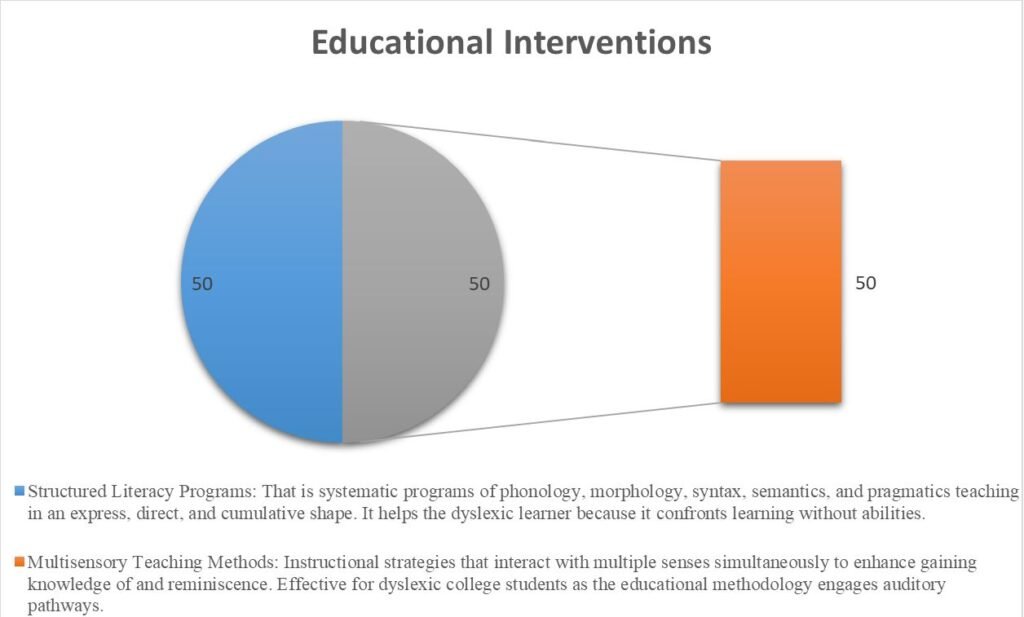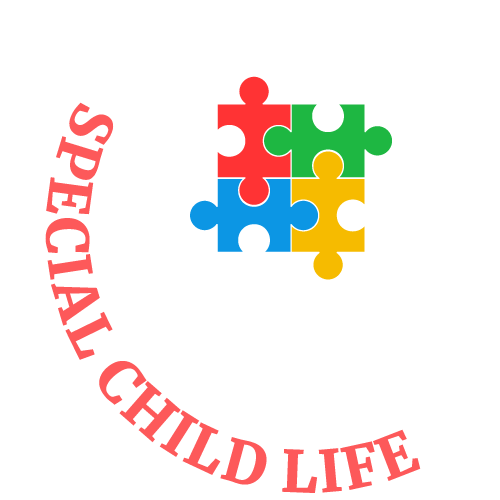Imagine that this problem also made school work extra tough and, in some instances, irritating. This is what many humans with Dyslexia undergo. It has nothing to do with how clever someone is. It is a learning distinction prompted by how records are processed inside the mind. So here we are, Discovering Dyslexia for Special Children.
This text permits discovering exactly what dyslexia is and why it happens. We would check the informative symptoms to indicate possible dyslexia in any character and how professionals diagnose it. You’ll additionally find out about the approaches through which dyslexia can certainly affect day-to-day existence and how people with dyslexia can get assistance and aid to reach their full potential. With a little better understanding of dyslexia, we may be in a pretty appropriate region to assist one another in building a more compassionate and inclusive world.
Causes and Risk Factors of Dyslexia
Militating to understand why it takes place may go a long way in supporting those who have the hassle. The key reasons for dyslexia include:
Genetic Factors for Discovering Dyslexia in Special Children
How Genes Influence Dyslexia
Dyslexia runs in households. If a person in your own family has dyslexia, you may be much more likely to have it as well. Scientists trust that positive genes affect how the brain processes language and studying talents; these genes make analyzing and writing without difficulty a harder chore for some people to study.
Genetic Links Research
Researchers have a look at those genes to learn more about Discovering Dyslexia for Special Children. They try to evaluate how these genes work in people with dyslexia and those without the condition. This helps them to understand why a few people find reading and writing harder.
Brain Anatomy and Dyslexia
Differences in Brain Structure
For individuals with dyslexia, their brains appear to process a chunk in differently when analyzing and processing language. Research experts have found that areas of the mind associated with studying and language improvement may be organized, but they are barely specific in people with dyslexia. The variations can have an effect on how well someone reads and knows words.
Brain Function & Dyslexia
It isn’t always only about how the mind is dependent, but also its capabilities. Humans with dyslexia process information uniquely. Sometimes, this processing can lead to issues linking sounds to letters, one of the most crucial being studying.
Environmental Factors
While genes do play a vast role, so do early reports. Things, including language exposure, school, and home, gaining knowledge of possibilities and supportive environments, may additionally have an effect on a baby’s reading potential. Dyslexia demands can be part of inadequate language exposure at some point in the early years or vulnerable teaching practices during childhood.
Educational Support and Interventions
Still, early identity and support could make a big difference. If teachers or parents suspect a scholar has dyslexia, they could paint together to search for more help and resources. Very early intervention allows some children to expand their studying capabilities and may reap a few advantages over the issues related to the getting-to-know-you sickness.
The triggers and hazard elements for Discovering Dyslexia for Special Children lie in an amalgamation of genetic effects and environmental factors. As scientists continue conducting research relating to genes and the form of the mind for assessing the impact on analyzing and language processing, it may be carried out to enhance the kind of support and interventions, especially for those formerly mislabeled or undiagnosed as having dyslexia. Early identification and supportive practices within the lecture room set college students with dyslexia up to succeed academically, in my opinion.
Symptoms & Signs for Discovering Dyslexia for Special Children
The methods in which it manifests in specific individuals additionally vary, essentially affecting studying, writing, and language capabilities. A list of tremendous symptoms and signs and symptoms includes the following:
Difficulty in Reading
For sufferers with dyslexia, the following headaches may also occur:
- Decoding: Patients often cannot break up and recognize phrases; therefore, studying is gradual and labored.
- Fluency: Reading aloud is regularly choppy or hesitant and often accompanied by pauses to understand the phrases.
Writing Difficulty
Because of the inability to jot down due to an incapacity to spell, patients find writing a frightening venture.
- Spelling Errors: Difficulty spelling words successfully, along with acknowledged ones.
- Organizational Issues: Disorganization in thoughts and writing them down on paper in a sloppy or disjointed manner.
Language Processing Problems
There can be a problem:
- Grasping Instructions: Comprehending commands, studying them, or complex sentences.
- Verbalization of Ideas: Good thoughts are tough to verbalize, even more so in a prepared/sequential way.
Grasping those signs and symptoms is, therefore, essential to early detection and well-timed intervention, giving a chance for fair opposition where humans with a disability can excel both academically and socially.
Diagnosis & Discovering Dyslexia for Special Children
Diagnosing dyslexia takes precise analysis tests and is conducted on numerous specialist critiques to ensure accurate identification. Here is how the complete system usually takes place:
Types of Assessments Used
Comprehensive Reading and Language Assessments
- Reading Tests: Assess analyzing abilities, such as interpreting, fluency, and comprehension, for Discovering Dyslexia for Special Children.
- Spelling and Writing Tests: Assess spelling accuracy, writing fluency, and organization.
- Language Tests: Measure the information and use of spoken language, together with vocabulary and grammar.
Cognitive Assessments
- Intellectual Functioning: A test that could include ruling out highbrow disabilities with IQ assessments.
- Processing Skills: Assess abilities consisting of auditory processing and reminiscence that could affect studying and language ability.
Professionals Involved in Diagnosing Dyslexia
Educational Psychologists
- Specialize in assessing and mastering difficulties and diagnosing dyslexia by completing a complete evaluation.
Clinical Psychologists
- Conduct psychological exams to understand cognitive and emotional aspects related to dyslexia.
Speech-Language Pathologists
- Assess the language talents of a baby, specializing in spoken and written language abilities.
Special Education Teachers
- Offer information from the pro-school room environment in conjunction with educational evaluation reports.
Criteria for Diagnosing Dyslexia Based on the Accepted Standard
The Discovering Dyslexia for Special Children is primarily based on positive parameters, such as:
- Difficulty in Analyzing: Characterized through Inaccurate or Labored Reading, Slow Speed, and/or Poor Comprehension.
- Evidence of Specific Learning Disability: Reading difficulties are not often due to other factors, including Intellectual Disability or Environmental.
- Impact on Academic Achievement: Reading difficulties considerably affect Academic Achievement and day-to-day functioning.
Accurate analysis is associated with the opportunity to use centered interventions and support strategies that will assist in Discovering Dyslexia for Special Children in achieving success academically and in life. Trailer Identification and early intervention are critical to optimize effects for men and women with dyslexia.
Management and Treatment of Dyslexia
The control of dyslexia entails educational interventions. This includes the utilization of assistive technologies, psychological intervention, as well as a broad circle of relatives and network involvement. The following explains how each of them facilitates helping individuals with dyslexia.

Assistive Technologies and Tools
Supporting Reading / Writing Skills
- Examples: Text-to-speech software programs, speech popularity applications, audiobooks, and word prediction gear.
- Benefits: Assistive technology supports weaknesses in studying and writing, consequently improving independence and educational achievement.
Psychological Support and Counseling
Addressing Emotional Aspects
- Importance: Discovering Dyslexia in Special Children frequently impacts vanity, motivation, and emotional well-being.
- Methods: Counseling and remedies for dyslexia enable human beings to triumph over feelings of frustration, anxiety, and inadequacy regarding their learning problems.
Family and Community Support
Family Involvement
- Setting up Supporting Environment: Parents and caregivers play an essential role in terms of advocating for their creative toddler’s needs and offering important encouragement.
- Education: It permits households to find out about dyslexia so that strategies can be applied at home in an effort to guide further studying and a surge in self- belief.
Community Resources
- Support Groups: Networking with other households and dyslexia sufferers to discuss problems and share experiences.
- Advocacy: Involving oneself with educational institutes and the society at large to raise awareness and make provisions for such suffering people.
Coupling those interventions and supports empowers human beings with dyslexia to construct their strengths while handling weaknesses. Very early intervention, particularly disease strategies, educational, assistive technology, psychological assistance, and the accession of a stable circle of relatives and community, Newtown, helps make a supportive environment for a younger Dyslexic person to start school and prevail emotionally. These combined efforts will foster a climate that permits and supports men and women with dyslexia to attain their complete capacity.
Final Note
In this evaluation article, we take the reader on a fascinating adventure via the multidimensional land of dyslexia and try to shed a little light on precisely what it means and why this happens. Firstly and most importantly, the middle point is that dyslexia’s worry has nothing to do with one’s intelligence but relates to differences in the manner of processing language and analyzing. Second, we delve into the details of the possible genetic bases of the sickness by displaying how genes affect analytical capabilities. If nicely understood, these genetic hyperlinks should factor the manner closer to guide those with dyslexia better. You can share your success story with us.
We additionally examined how differences in brain structure and features for dyslexia had been implicated. Appreciation for the underlying roots of hard paintings, struggling to study, and, in my view, hard writing makes all the difference. In this regard, we also saw how very early stories and gaining knowledge of environments come together to affect dyslexia. Very early help and interventions, therefore, could make a difference in assisting youngsters to get beyond hurdles and grow into young people who excel.
Much better for knowing the circumstances of dyslexia, we may be intentionally growing environments that provide extensive inclusivity and suitable support for people who need them. If you are discerning, a trainer, or have dyslexia yourself, there may be power in knowing to make a difference. Do something: learn extra, work for support in schools and communities, and search for assistance from a professional if wished. Together, we can paint closer to making existence less difficult for people with dyslexia, allowing anybody to thrive.




